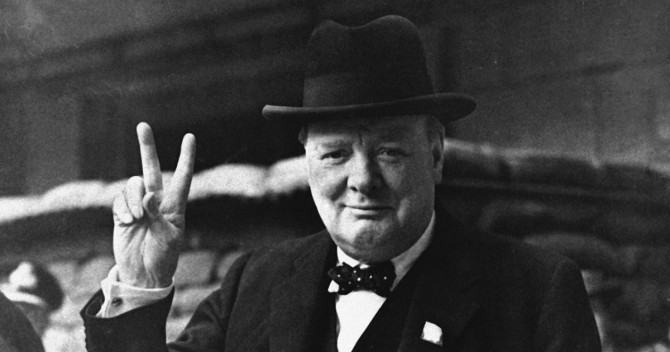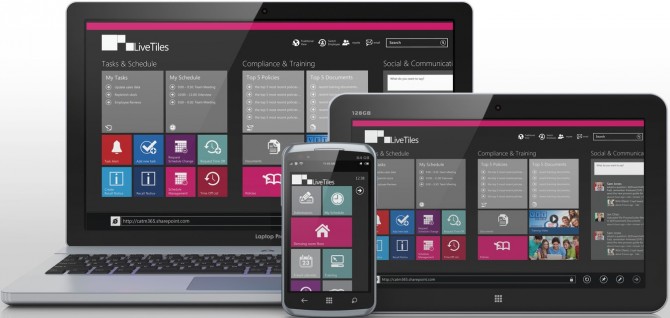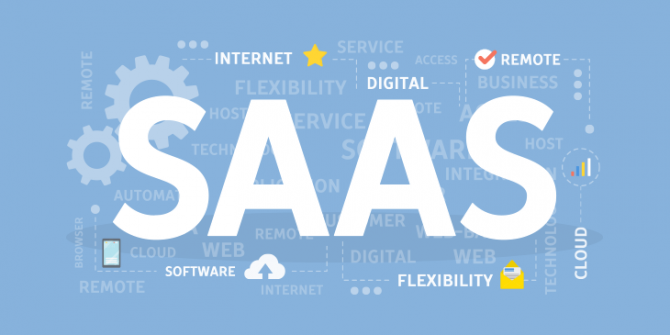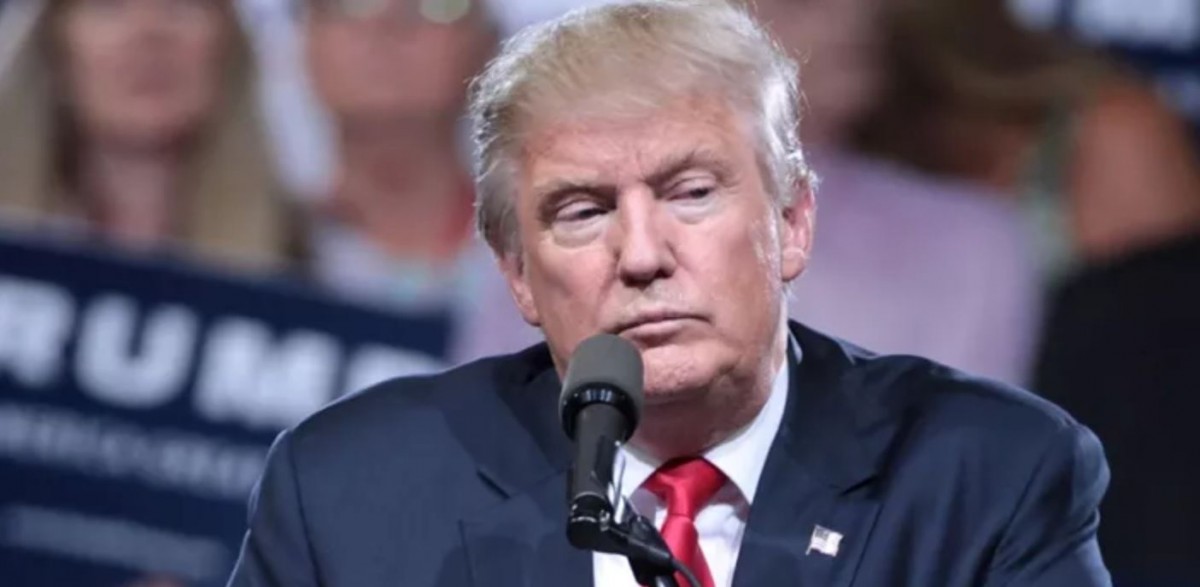
Why do you want to make money?
The answer may seem obvious to you, but I guarantee it is not always so obvious to other people, sometimes even to the people closest to you. That’s because when we talk about money, we are really talking about what we value [1], and what everyone values differs from person to person. It is ultimately a question of perspective.
What you may see merely as a means to a more comfortable, secure and less anxious existence can be interpreted in a much more negative light [2]. Talk too much on the topic and you risk leaving people with the impression you are a misguided miserly Gordon Gekko wannabe who has aspirations of diving into a big reservoir of money á la Scrooge McDuck.

Not all roads to riches require a person to reflect and understand perspective. A businessperson who happens to deal with exclusively like-minded individuals or a person born into inherited wealth may have little need for it. However, for the investor – particularly an investor in the public share markets – the ability to understand the motivation of others when assessing value is arguably essential.
Different perspectives are at the core of Strawman. There is great value in attempting to understand the opinions of others. To deliberately expose oneself to someone else’s point of view. When we fail to do so we risk exposing ourselves to the completely unexpected.
Wherever you stand on the political spectrum, you need look no further than the life and career of the 45th President of the United States of America for a crash course in the concept of perspective.
Donald J Trump’s foray into politics was initially viewed with incredulity and even ridicule. His electoral success in November 2016 took the political establishment by complete surprise [3]. The pollsters had lost perspective. Whole cohorts of people were not being captured in surveys. In the age of social media we have started interacting with each other through echo chambers of our own creation. A 2018 study of 2.7 billion tweets found most people only expose themselves to political opinions they agree with [4].

I have neither the time nor expertise to replicate the above scientific study. But again, the sample of one incumbent US president is illustrative. Below I have categorised President Trump’s likely twitter feed as it stands in mid-September 2019.
Let’s assume for a moment that DJT, just prior to firing off a tweet, took a couple of moments (and perhaps even a few deep breaths) to review his incoming newsfeed from the 47 accounts he follows. We’ll further have to assume the twitter algorithm gave each account roughly equal time and space in his feed. Anyway, the ratios of the sources of his information could be broadly broken down as follows:
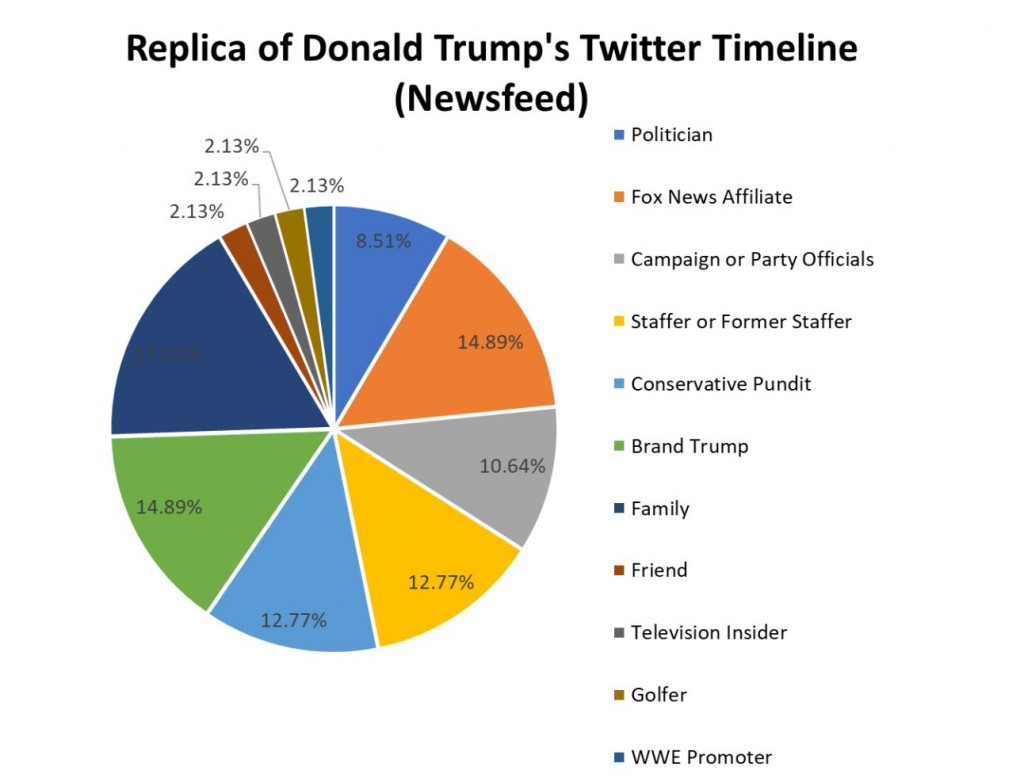
My feeling is that the average share market investor should be striving for more diversity than this. How much more I couldn’t tell you. But as a general rule, if over a third of what you are hearing is from people or organisations that share your last name then you may not be adequately diversified in the ideas space. We sometimes need to look beyond our comfort zone to hear those unpleasant hard truths.
Admittedly, a lack of deference for dissenting opinion appears not to have hampered Trump’s wealth. Whilst it is true that the foundation of the billionaire’s wealth was inherited, the fact that Trump built on and compounded this wealth with his own brand is also undeniable [5]. If I’m arguing that the perspective of others is such an important ingredient for wealth creation how then did Trump do this?
Perhaps it is because, as the author Timothy O’Brien put it in Netflix’s fascinating documentary Trump: An American Dream, “Donald Trump is a poor person’s idea of what a rich person does. His apartment looks like it was designed by Loius XIV on acid: Gold leaf, marble, shiny things.”
Trump’s brand – his books, his hotels, his television show – are all selling a product to like-minded people, people who have the same ideas about money and what it means as he does. You and I probably don’t have the luxury of finding financial success in this way.
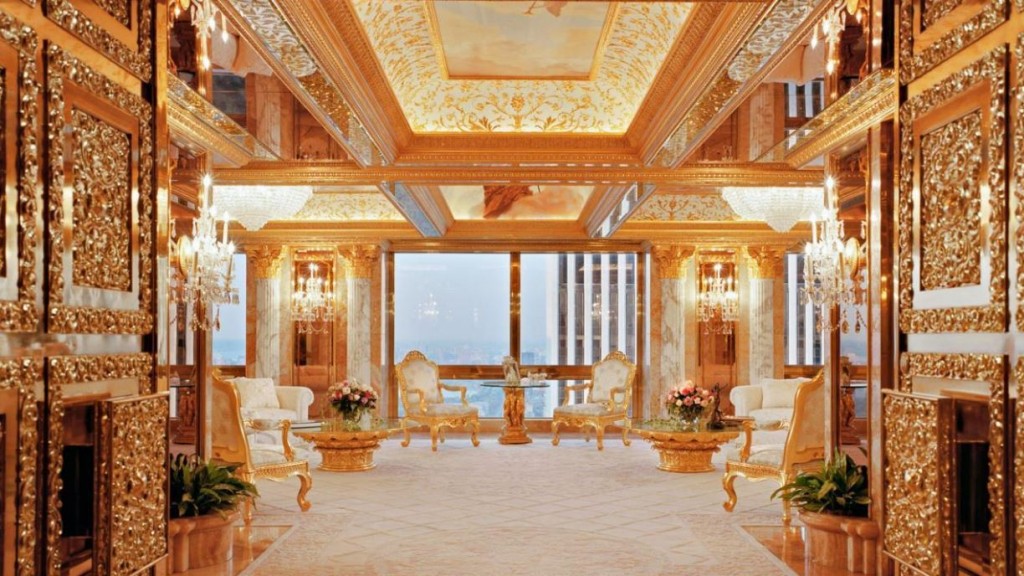
There are few things Trump and I would be likely to agree on. With one exception perhaps: the high value we both place on free time [6].
Which brings me to my last point on perspective and values – what we value can be very situational.
Few people would deny an individual’s need for a holiday or personal time, but many of us may be uneasy with the leader of the free world seeming distracted by golf, cable news or other pursuits. Even within our own lives, what we value, and in what proportions, changes. It is sometimes called the ‘diamond-water paradox’ [7]. The gist of it is, when hydrated, we generally don’t like paying the big bucks for water, even the sparkling-flavour-fancy-pants varieties, yet we will voluntarily (if not completely happily) fork over an obscene portion of a year’s salary for diamonds.
The flip side to this is that when we are dying of thirst in the desert there is no limit to what we would pay for water and, in that moment, diamonds are worthless. Importantly, this particular theory has generated skewed results amongst an isolated demographic of long-term partners who feel they have waited too long for a question to be popped.
As the proud new father of a beautiful baby I have found what I value has re-adjusted, much of it in a predictable and traditional fashion. One surprise though, worthy of comment here, has been the elevation of a previously common as water commodity to that of rare diamond status – that of sitting still in silence. No one tells you this, but babies must, at all times, be in a state of perpetual motion. I have found myself apologizing to my child for red traffic lights. I have internalised this need for constant movement to the point where I find myself rocking non-baby holding shopping trolleys back and forth, perhaps subconsciously concerned that my broccoli is at any moment about to object loudly to its stationary status.

However, most of what we value will stay rather consistent. For this reason I believe these things are worth thinking about and even challenging.
For all his wealth Donald Trump doesn’t strike me as someone who has experienced a great relief from anxiety and insecurity through his immense monetary wealth. Generally, to compare yourself to someone who has more than you is to invite unhappiness into your life. This rule actually holds true in this case, just ensure you are focusing on the right things: You may never have more money than Donald Trump, but if you try, you can probably achieve a greater perspective than he has.

Strawman is Australia’s premier online investment club. Join for free to access independent & actionable recommendations from proven private investors.
Disclaimer– The author may hold positions in the stocks mentioned in this publication, at the time of writing. The information contained in the publication and the links shared are general in nature and does not take into account your personal situation. You should consider whether the information is appropriate to your needs, and where appropriate, seek professional advice from a financial adviser. For errors that warrant correction please contact the editor at [email protected].
This Service provides general financial advice only, and has not taken your personal circumstances into account. Strawman Pty Ltd operates under AFSL 501223 . For more information please see our Terms of use. Please remember that share market investments can go up and down and that past performance is not necessarily indicative of future returns. Strawman Pty Ltd does not guarantee the performance of, or returns on any investment.
© 2019 Strawman Pty Ltd. All rights reserved.
| Privacy Policy | Terms of Service | Financial Services Guide |
ACN: 610 908 211 | Australian Financial Services Licence (AFSL): 501223

